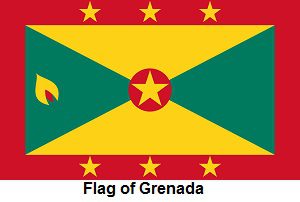Go Lean Commentary
When people say it’s the principle and not the money, chances are: it’s the money. – Murphy’s Law on Money
Yes, there are more important things in life than money, but without money, those important things fall by the wayside, or never get pursued.
 This is the nature of man. Psychologist Abraham Maslow addressed this subject in a comprehensive way. He established a “Hierarchy of Needs” that accurately depicted this fact that basic needs (food, clothing, shelter, safety, etc.) will always be the first priority. Efforts in pursuit of higher-level needs – art, beauty, esteem, etc. – will only be engaged once those basic needs are satiated.
This is the nature of man. Psychologist Abraham Maslow addressed this subject in a comprehensive way. He established a “Hierarchy of Needs” that accurately depicted this fact that basic needs (food, clothing, shelter, safety, etc.) will always be the first priority. Efforts in pursuit of higher-level needs – art, beauty, esteem, etc. – will only be engaged once those basic needs are satiated.
This premise is not in doubt, especially in times of peace. (Yes, the sword/gun is most persuasive, but not lasting).
So considering the 3 societal engines of a community – economics, security and governance – it is so much easier to lead and get people to voluntarily comply – to lean-in – through economic means rather than by any security or governing directives.
For the vast majority of the world’s population, money plays a huge part in their decision-making. So this new movement to shepherd the Caribbean – group behind the book Go Lean…Caribbean – accepts that the best way to get regional buy-in is to lead with Money Matters.
This commentary is the first of a 5-part series from the movement behind the book Go Lean … Caribbean in consideration of Money Matters for leading the Caribbean down a different path from their status quo. The other commentaries in the series are cataloged as follows:
- Leading with Money Matters: Follow the Jobs
- Leading with Money Matters: Competing for New Industries
- Leading with Money Matters: Almighty Dollar
- Leading with Money Matters: As Goes Housing, Goes the Market
- Leading with Money Matters: Lottery Hopes and Dreams
All of these commentaries relate to “how” the stewards for a new Caribbean can persuade the region’s stakeholders to follow this empowerment roadmap. It is logical to conclude that people will “follow the money”. This conforms with the Go Lean quest to reform and transform the economic engines of the Caribbean member-states so that they can be better places to live, work and play. We have to “dangle money in front of our subjects”. Then, only then, will we get their attention. This is sad, but true!
The Go Lean book – available to download for free – declares that Caribbean society must change; the economic engines must be rebooted, and optimized, otherwise our society will simply not survive, not on the current trajectory.
If people are money motivated – and they are – then economic incentives should work. This point is presented in the Go Lean book (Page 21), quoting proven economic principles:
- People Respond to Incentives in Predictable Ways:
Incentives are actions, awards, or rewards that determine the choices people make. Incentives can be positive or negative. When incentives change, people change their behaviors in predictable ways. - Economic Systems Influence Individual Choices and Incentives:
People cooperate and govern their actions through both written and unwritten rules that determine methods of allocating scarce These rules determine what is produced, how it is produced, and for whom it is produced. As the rules change, so do individual choices, incentives, and behavior.
Any attempt to empower Caribbean economics must start with a focus on jobs. Frankly, there are not enough jobs in the region, for any one of the 30 countries.
Due to this deficiency, people will respond to the availability or the absence of jobs. This is a fact today and was a fact for hundreds of years:
“Go West, Young Man” …
… is a phrase often credited to the American author and newspaper editor Horace Greeley concerning America’s expansion westward, related to the then-popular concept of Manifest Destiny. … Greeley later used the quote in his own editorial in 1865. Greeley favored westward expansion. – Source
In the mid 19th Century (1800’s), the US was expanding beyond the original 13 colonies into the Western parts of the continent:
- Louisiana Purchase in 1804
- Settling the War of 1812 with the compromise for the Northwest Territories (Ohio, Indiana, Illinois, Michigan, Wisconsin)
- Texas Annexation in 1832
- Annexation of Oregon Territory in 1846
- New Mexico-California Acquisition in 1848
As the East Coast experienced economic stagnation, the sage advice was to “Go West” to seek jobs and entrepreneurial opportunities (like mining for precious metals: gold, silver, etc.).
This same advice is being followed in the Caribbean … today.
The region is in the throes of economic stagnation and people are leaving to “Go West”, many to the US, to find jobs. Our Caribbean people are being both “Pushed” and “Pulled”:
- “Push” refers to people who feel compelled to leave to find jobs, or better jobs; they seek refuge in this foreign land. “Refuge” is an appropriate word; because of economic defects in the homeland, people find that they must leave.
- “Pull”, on the other hand refers to the lure of a more prosperous life abroad; our people are emigrating for strong economics reasons; even many low level jobs in the foreign lands are more prosperous than professional ones at home.
The Number One employer in many Caribbean countries is the government, the Public Service; think Teachers, Nurses, government clerks, etc.. But even if people are able to get these jobs, the compensation is normally too small …
This is the true experience! Well trained, professionals, are inclined to flee due to the deficient pay. Notice this experience in this news article here:
Title: Pay up! – Educate Jamaica says $250,000 monthly salary needed to keep mathematics and science teachers in classroom
By: Gleaner Contributor Andre Poyser
Education Think Tank, Educate Jamaica, has estimated that it will take a minimum monthly salary of $250,000 to stem the flow of mathematics and science teachers leaving the classroom.
Data from the Ministry of Education indicate that 494 mathematics and science teachers exited the public education system in 2015.
According to the Think Tank, “24 to 36 months from now will see the biggest exodus of mathematics and science teachers from Jamaican classrooms”.
This exodus, it says, can only be halted by offering these teachers a monthly salary of $250,000.
A trained teacher at the entry level earns approximately $90,000 after tax.
“Only a salary of J$250,000 each month (after tax) will tempt these teachers to stay or tempt Jamaicans to return from these overseas countries to take up back their jobs. The other option will be for Jamaica to recruit teachers from Asian, South American and African countries such as Nigeria and Ghana to fill the gap being left,” the Think Tank said in an article on its website.
Explaining how he arrived at this figure, Ainsworth Darby, Chief Executive of Educate Jamaica, said he compared the salaries of teachers in the United Kingdom and the United States.
Darby also argued that a proposal to offer scholarships to attract more students to train as mathematics and science teachers should be complemented by offering more pay to these teachers.
WRONG DECISION
News reports have indicated that education minister Ronald Thwaites has backed down from a controversial differentiated-payment proposal for math and science teachers.Darby however, believes this was a wrong decision that should be revisited. He also argued that the recruitment measure announced by Thwaites will not be enough to effectively fill the gap of mathematics and science teachers leaving the system.
Thwaites has said the proposal to pay math and science teachers more than their colleagues will not be dismissed.
However, he said the ministry hopes that the recruitment measure will help to replace the more than 500 math and science teachers who have left local classrooms within the last 12 months.
Source: Retrieved from The Jamaica Gleaner Daily Newspaper – January 27, 2016 from: http://jamaica-gleaner.com/article/news/20160127/pay-educate-jamaica-says-250000-monthly-salary-needed-keep-mathematics-and
Wait, what?!?!
The dollar amounts discussed in this foregoing article refer to Jamaican Dollars. The exchange rate at this time 1 US Dollar to 80 Jamaican Dollars ($J) or 1 J$ equals 0.0080 US$. So the reference to “a trained teacher at the entry level [that] earns approximately $90,000 after tax” is actually referring to:
- J$90,000 = US $720
- The recommended salary of J$250,000 equals US$2,000.
On the other hand, in the US, entry level jobs at Fast Food restaurant chain, McDonalds, is now starting in excess of US$9 per hour OR J$1,125. So a monthly salary, assuming 40-hour work weeks, would be J$180,000 (US$9 X 40 X 4 or $1,440).
Wow, that McDonalds minimum pay of $9/hr-plus … is more than Jamaica’s Public Service professionals. (The experience is similar in other countries).

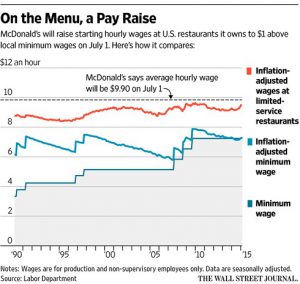
This matter is all relative. While Caribbean member-states are complaining about “too low” wages for their Public Service employees, US workers are complaining about “too low” wages in the US. According to the foregoing, we are not competing in the Caribbean; we appear to not even me trying to compete.
Whatever a man is sowing, this he will also reap! – The Bible; Galatians 6:7
The disposition of the Caribbean economic landscape is dire.
If we want to reform and transform – we do – the stakeholder must effect change, some how. This is the quest of the Go Lean roadmap. We want to make Caribbean homeland a better place to live, work and play.
How?
The book serves as a roadmap for the introduction and implementation of the technocratic Caribbean Union Trade Federation (CU), for the elevation of Caribbean society – for all member-states. This CU/Go Lean roadmap has these 3 prime directives:
- Optimization of the economic engines in order to grow the regional economy to $800 Billion & create 2.2 million new jobs.
- Establishment of a security apparatus to ensure public safety and protect the resultant economic engines.
- Improve Caribbean governance to support these engines, including a separation-of-powers between the member-states and CU federal agencies.
The plan is simple, create Two Pies for regional economics. In a previous Go Lean commentary, it related:
In order to reboot the societal engines there must be these Two Pies. The CU Trade Federation is designed to lead, fund and facilitate regional empowerment plans. But the plan is NOT for the individual member-states to write checks to the CU so as to share one state’s treasuries with another state. Rather, the CU Trade Federation creates its own funding – from regionalized services – and then encumbers the funds for each member-state to deliver the economic, security and governing mandates. This is analogized as Two Pies:
- One ‘pie‘ to represent the existing budgets of the member-states and how they distribute their government funding between government services (education, healthcare, etc.), security measures (Police, Coast Guards)
- One ‘pie‘ to represent the CU funding from exclusive activities (Spectrum Auctions, Lottery, Exploration Rights, Licenses, Foreign-Aid, etc.).
For the CU pie, the strategy, tactic and implementation is for competitive salaries (compensation and benefits) for Federal Public Servants (Page 173). Plus, the CU roadmap deputizes the member-state governments for a lot of their functionality – i.e. Post Office – so that will lighten the load for the existing government payroll even further. Lastly, the CU automation and lean practices will optimize overall government delivery: do more with less.
The Go Lean book stresses that reforming and transforming the Caribbean societal engines (economics, security and governance) must be a regional pursuit. This was an early motivation for the roadmap, as pronounced in the opening Declaration of Interdependence (Pages 12 – 13):
xi. Whereas all men are entitled to the benefits of good governance in a free society, “new guards” must be enacted to dissuade the emergence of incompetence, corruption, nepotism and cronyism at the peril of the people’s best interest. The Federation must guarantee the executions of a social contract between government and the governed.
xvi. Whereas security of our homeland is inextricably linked to prosperity of the homeland, the economic and security interest of the region needs to be aligned under the same governance. Since economic crimes … can imperil the functioning of the wheels of commerce for all the citizenry, the accedence of this Federation must equip the security apparatus with the tools and techniques for predictive and proactive interdictions.
xxiv. Whereas a free market economy can be induced and spurred for continuous progress, the Federation must install the controls to better manage aspects of the economy: jobs, inflation, savings rate, investments and other economic principles. Thereby attracting direct foreign investment because of the stability and vibrancy of our economy.
xxvi. Whereas the Caribbean region must have new jobs to empower the engines of the economy and create the income sources for prosperity, and encourage the next generation to forge their dreams right at home, the Federation must therefore foster the development of new industries, like that of … frozen foods … impacting the region with more jobs.
In total, the Go Lean book provides 370-pages of turn-by-turn instructions on “how” to adopt new community ethos, plus the strategies, tactics, implementations and advocacies to execute so as to reboot, reform and transform the societal engines of Caribbean society.
So what should the planners for a new Caribbean regime do next? Or do first, since the CU Trade Federation is not currently in force?
Lead with Money Matters.
Money is not the only option, but it is the best, most efficient and effective choice. Consider the other options of security or governance:
Show up to reform a community’s security apparatus or governance and you must convene (the stakeholders), collaborate, consensus-build and compromise. That is not easy! But try to reform economics by showing up with a boatload of money and boatload of jobs; people will line-up around the corner to comply, capitulate and consume those jobs.
Boom! Economic reform is easier!
The evidence shows that our Caribbean citizens have been abandoning their Caribbean communities and those government Public Service jobs to flee to foreign shores, looking for work, like those American minimum wage jobs.
One man’s trash is another man’s treasure.
(See the Appendix & VIDEO below).
We can and must do better. We must create job options here at home. This has been a familiar theme for previous Go Lean commentaries; consider this sample:
| https://goleancaribbean.com/blog/?p=14191 | Where the Jobs Are – The Option of ‘Gigs’ |
| https://goleancaribbean.com/blog/?p=13420 | Where the Jobs Are – Lessons from Whaling Gigs |
| https://goleancaribbean.com/blog/?p=13184 | Where the Jobs Are – Industrial Reboot; A Series |
| https://goleancaribbean.com/blog/?p=9751 | Where the Jobs Are – Animation and Game Design |
| https://goleancaribbean.com/blog/?p=6089 | Where the Jobs Are – Futility of Minimum Wage |
| https://goleancaribbean.com/blog/?p=2857 | Where the Jobs Are – Entrepreneurism in Junk |
| https://goleancaribbean.com/blog/?p=2126 | Where the Jobs Are – Computers Reshaping Global Job Market |
| https://goleancaribbean.com/blog/?p=2025 | Where the Jobs Are – Attitudes & Images of the Diaspora |
| https://goleancaribbean.com/blog/?p=2003 | Where the Jobs Are – One Scenario: Ship-breaking |
In summary, forging change in the Caribbean will mean doing better at job creation. Plain and simple!
There is a plan, here and now, to execute such a charter. This plan is conceivable, believable and achievable. But it is heavy-lifting too.
So let’s get busy …
… in the hard work of optimizing our society. Let’s lean-in to this plan to lead with Money Matters and make our Caribbean homeland a better place to live, work and play. We urge every Caribbean stakeholders to lean-in to this roadmap. 🙂
Download the free e-book of Go Lean … Caribbean – now!
Sign the petition to lean-in for this roadmap for the Caribbean Union Trade Federation.
——————
Appendix Title: McDonald’s Joins Trend in Raising Pay
Sub-title: Pay will be at least $1 per hour more than minimum wage—franchisees excluded
By: Annie Gasparro and Eric Morath
McDonald’s Corp. plans to raise wages by more than 10% for workers at U.S. restaurants it operates—fresh evidence of the rising wage pressure in the American labor market.
Starting July 1, McDonald’s will pay at least $1 an hour more than the local minimum wage for employees at the roughly 1,500 restaurants it owns in the U.S.
The move follows similar efforts by other U.S. employers including WalMart Stores …
Read the full article here:
Source – Posted Wall Street Journal April 1, 2015; retrieved February 15, 2018 from: https://www.wsj.com/articles/mcdonalds-to-raise-hourly-pay-for-90-000-workers-1427916364
———
VIDEO – McDonalds Will Pay at Least $1 per Hour More than Minimum Wage – http://www.wsj.com/video/mcdonald-to-raise-hourly-pay-by-10/CC71E017-D357-4AF1-A71F-7381C5BF0232.html
McDonald’s will raise the pay for 90,000 workers by 10%, or $1 over the minimum wage, by July. WSJ’s Annie Gasparro reports.

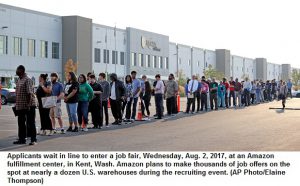
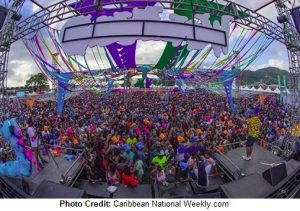
 The Foreign Office warned to avoid crowded places after cops discovered a suspected plot to target the Mardi Gras festivities on Monday and Tuesday.
The Foreign Office warned to avoid crowded places after cops discovered a suspected plot to target the Mardi Gras festivities on Monday and Tuesday.
 If only we can get the people behind it.
If only we can get the people behind it. This is the call of the movement behind the book Go Lean…Caribbean – available to
This is the call of the movement behind the book Go Lean…Caribbean – available to 


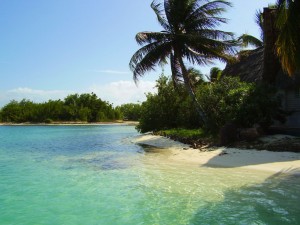

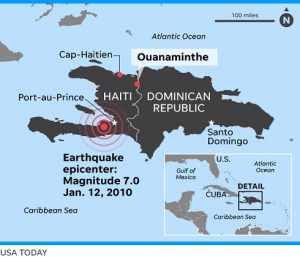
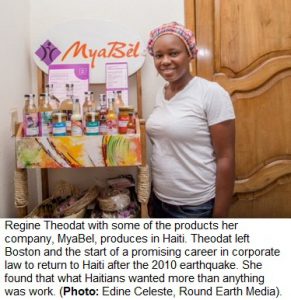 She is among a small army, most of them women, who returned to Haiti and started businesses. Theodat makes food and cocktails. Another woman supplies castor oil beauty products to North American stores, including Whole Foods. Some of the others sell fruit smoothies, jewelry and chocolate.
She is among a small army, most of them women, who returned to Haiti and started businesses. Theodat makes food and cocktails. Another woman supplies castor oil beauty products to North American stores, including Whole Foods. Some of the others sell fruit smoothies, jewelry and chocolate.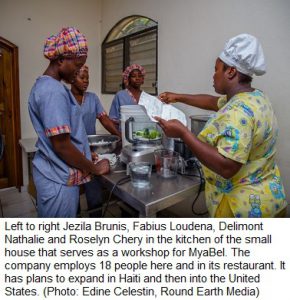 Jezila Brunis, 37, a single mother of three, makes minimum wage, about $5.50 a day, in the workshop. She’s able to send her children to school, and she likes the process of washing and chopping ingredients, feeding them into mixers and cooking them on a stove-top. “I’m always learning new things,” she said.
Jezila Brunis, 37, a single mother of three, makes minimum wage, about $5.50 a day, in the workshop. She’s able to send her children to school, and she likes the process of washing and chopping ingredients, feeding them into mixers and cooking them on a stove-top. “I’m always learning new things,” she said. Unlike Theodat, Corinne Joachim Sanon long planned to start a business in Haiti. She grew up in Port-au-Prince, graduated from high school at 16 and headed to the University of Michigan to study industrial engineering. She was in Wharton’s business program when the earthquake struck, destroying her family home and killing her grandmother.
Unlike Theodat, Corinne Joachim Sanon long planned to start a business in Haiti. She grew up in Port-au-Prince, graduated from high school at 16 and headed to the University of Michigan to study industrial engineering. She was in Wharton’s business program when the earthquake struck, destroying her family home and killing her grandmother. Askanya sells bars at scores of locations across Haiti and the U.S. Boosted by recognition at festivals in Seattle and Paris, Joachim Sanon is looking to expand production and double its number of growers.
Askanya sells bars at scores of locations across Haiti and the U.S. Boosted by recognition at festivals in Seattle and Paris, Joachim Sanon is looking to expand production and double its number of growers.


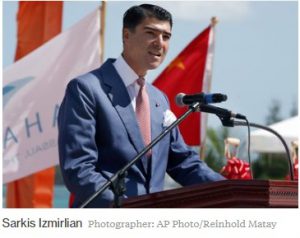 BML Properties Ltd
BML Properties Ltd

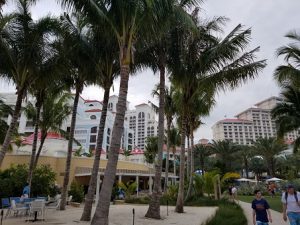
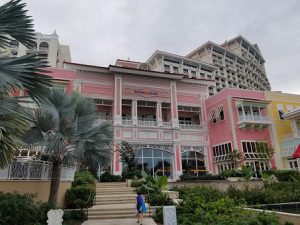



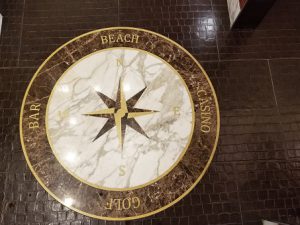

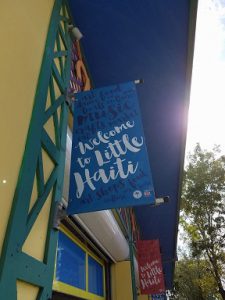
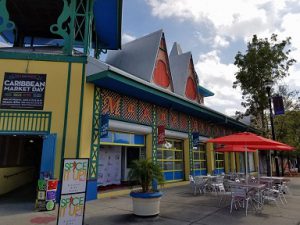





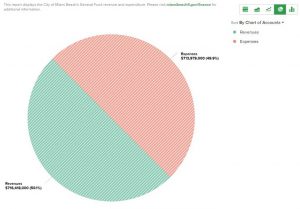 For example, the entire Caribbean region enjoys 80 million visitors a year; (though this figure includes 12 million cruise passengers visiting multiple Caribbean destinations on one cruise); just the US city of Orlando has one destination –
For example, the entire Caribbean region enjoys 80 million visitors a year; (though this figure includes 12 million cruise passengers visiting multiple Caribbean destinations on one cruise); just the US city of Orlando has one destination – 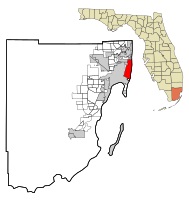 Miami Beach is a coastal resort city in Miami-Dade County…. It was incorporated on March 26, 1915.
Miami Beach is a coastal resort city in Miami-Dade County…. It was incorporated on March 26, 1915.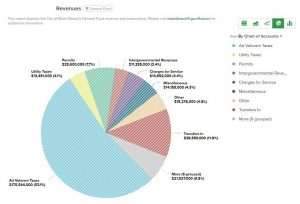

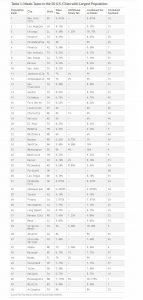
 This small peninsula of South Beach is Hot, Hot, Hot … as a party and tourist destination, thereby creating a scarcity of real estate. The dining, night-clubbing, shopping and entertainment options in this District are in high demand, all year long. Not all patrons to this District stay at area hotels, as many are locals in addition to the constant flow of visitors. Most night clubs, and even some restaurant-bars, apply a Cover Charge, typically $20 per person. These patrons should also expect to pay $40 just for valet parking, and similarly above-average prices for self-parking. Hotel rates are consistently above average, even during the off-season (consider $300 per night). During the peak-season, rates are traditionally in excess of $500. Hotel guests with rental cars face the same $40 per night parking charges.
This small peninsula of South Beach is Hot, Hot, Hot … as a party and tourist destination, thereby creating a scarcity of real estate. The dining, night-clubbing, shopping and entertainment options in this District are in high demand, all year long. Not all patrons to this District stay at area hotels, as many are locals in addition to the constant flow of visitors. Most night clubs, and even some restaurant-bars, apply a Cover Charge, typically $20 per person. These patrons should also expect to pay $40 just for valet parking, and similarly above-average prices for self-parking. Hotel rates are consistently above average, even during the off-season (consider $300 per night). During the peak-season, rates are traditionally in excess of $500. Hotel guests with rental cars face the same $40 per night parking charges.
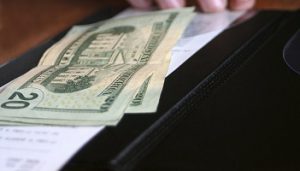 One bad lesson is the practice of guaranteed gratuity. In a
One bad lesson is the practice of guaranteed gratuity. In a 







 But who would the Police call when they have a problem?
But who would the Police call when they have a problem?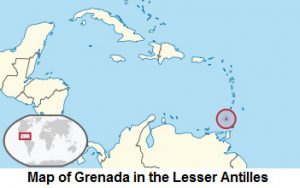
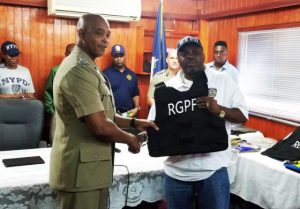 Bullet Proof vests are necessary equipment for community policing. The foregoing news article, and VIDEO in the Appendix below, related that the Diaspora group, the NYPD-RGPF, “donated 100 bullet-proof vests, helmets, traffic enforcement equipment and other gear to the Grenada Police Force in September”. Frankly, this is a local government responsibility. The fact that there is the need for this gift in Grenada is reflective of the security deficiencies in that country and in the region. If the community stakeholders cannot protect their own Peace Officers, how much more so can they protect the citizenry. See this sage commentary:
Bullet Proof vests are necessary equipment for community policing. The foregoing news article, and VIDEO in the Appendix below, related that the Diaspora group, the NYPD-RGPF, “donated 100 bullet-proof vests, helmets, traffic enforcement equipment and other gear to the Grenada Police Force in September”. Frankly, this is a local government responsibility. The fact that there is the need for this gift in Grenada is reflective of the security deficiencies in that country and in the region. If the community stakeholders cannot protect their own Peace Officers, how much more so can they protect the citizenry. See this sage commentary: The Caribbean has mourned the death of a Police Office in Grenada. The Caribbean is not the only region that have experienced violent crime … against law enforcement officers and other citizens. In fact, in the US, the
The Caribbean has mourned the death of a Police Office in Grenada. The Caribbean is not the only region that have experienced violent crime … against law enforcement officers and other citizens. In fact, in the US, the 